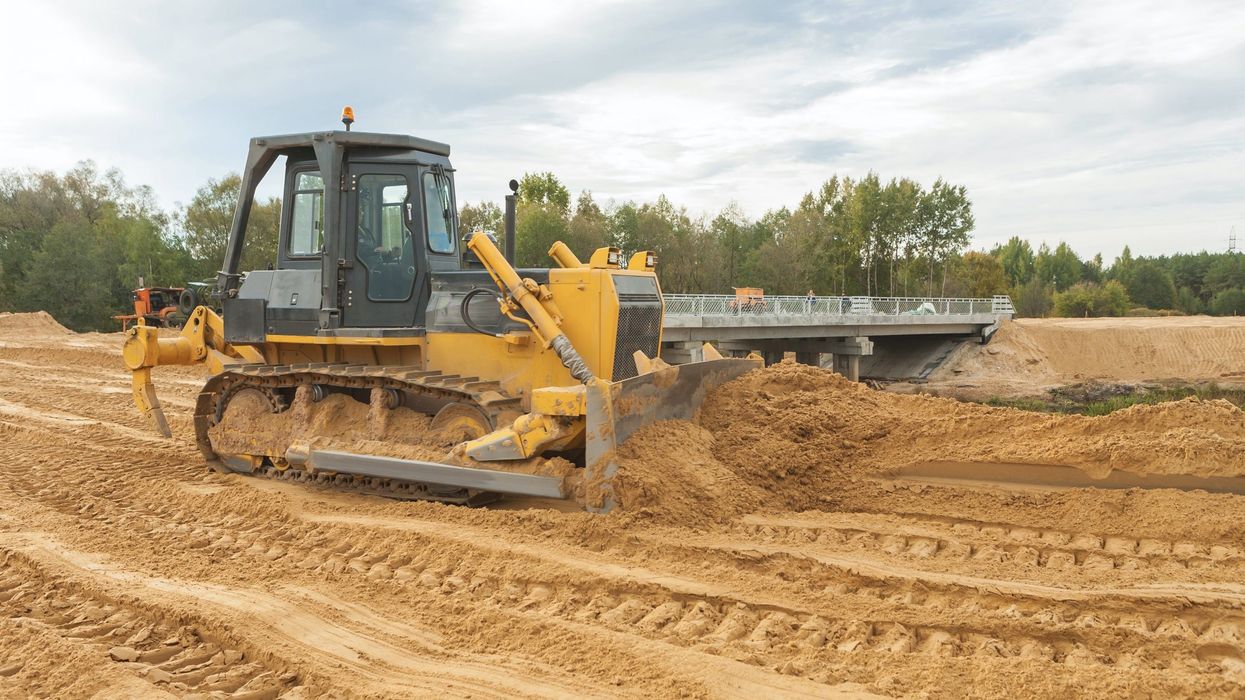Gas prices may be wreaking havoc on the wallets of everyday drivers when filling up at the pump, but for construction industry professionals, it's meant large-scale changes to the way they operate.
Josh Gaglardi, principal and founder of British Columbia-based industrial and commercial construction firm Orion Construction, says he is certainly feeling the effects of rising fuel prices, the most obvious being when it comes to the price of operating necessary fuel-powered machinery.
"Many of our sites are Greenfields," Gaglardi said. "We're clearing trees, we're clearing organics, and we're moving quite a bit of dirt around, so we've been heavily impacted by gas prices.... I can tell you for sure that my business, we've seen our gas prices go up 50%, so it's quite a potential increase for a business in this market."
The Perfect Storm for Rising Prices
Month after month, gas prices across Canada have broken records, with experts predicting even further jumps in costs throughout the summer. Just this week, the national average gas price hit 209.7/L, with the average price in B.C. reaching as high as 226.9/L. This, compounded with other factors like supply chain issues and higher costs due to heightened inflation is weighing heavily on the construction industry. Runaway inflation has also been driven, in part, by increased fuel prices as a result of the country's already limited fuel supply being exacerbated by economic sanctions against Russia banning the import of Russian oil and gas into Canada.
"That's the tricky part -- we're facing so many inflationary measures," Gaglardi said. "It's hard to pinpoint exactly where the cost increases are coming from. You can identify three or four areas where they're most probable to come from, but we've seen, generally, cost increases of around 25-30% since the beginning of the pandemic."
But buildings need to be built, and the current economic conditions have forced Orion Construction to consider new approaches.
"We've had to pivot because you know, we need we need these projects to proceed as that's our main business, so we've had to be creative," Gaglardi said.
READ: Rising Rates Are Also Threatening Affordable Housing Development
Bulk buying construction materials as they become available -- and when prices are slightly less jaw-dropping -- and then using the warehouses that they are building to store the materials in has been one tactic to keep their projects on track and closer to budget.
"You really have to be very intentional and very up-to-date on the cost situation and checking with your suppliers and vendors almost on a weekly basis to see where are costs today, and then you have to do those analytics for your business in real time," Gaglardi said.
Real estate prices hit record highs during the pandemic, making housing increasingly unaffordable for many Canadians. One of the solutions to the country's housing crisis that's been discussed at various levels of government across seemingly every province has been increasing supply with new builds. But as Gaglardi notes, when construction prices rise, it's ultimately the end user who typically ends up paying for it.
"It always falls its way to the bottom of the hierarchy, which is either the user or the consumer," Gaglardi said. "They're having to pay higher lease rates or higher strata purchase prices because the cost of construction is so much higher. There's also layered on top of that the scarcity of land in our local market, so it's getting incredibly expensive for businesses and local market to cope with the cost of doing business."
That cost, Gaglardi says, is now putting some businesses at risk.
"If you can imagine you are an electrical supplier, and you sign a contract and you've got to deliver products and services in 12 months, and during that 12 months, you see a material increase of 50% -- which is generally larger than the profit component of your contract -- and you're held to your fixed price contract for the original amount, it doesn't take very much fluctuation for these businesses to be very compromised," Gaglardi said.
As for what's being done to ease the pain, past governmental efforts haven't had a meaningful effect, Gaglardi says, noting the one-time $110 gas rebate introduced by the B.C. government earlier this year for ICBC customers.
"From a business perspective, the actual value of the rebate is so insignificant to the cost that it doesn't really register," Gaglardi said. "I'm not sure how much the government can do about it locally, but maybe gas and petroleum security long term as a country should be at the forefront because these costs, they are continuing to increase and they're making it very hard to do business."





















